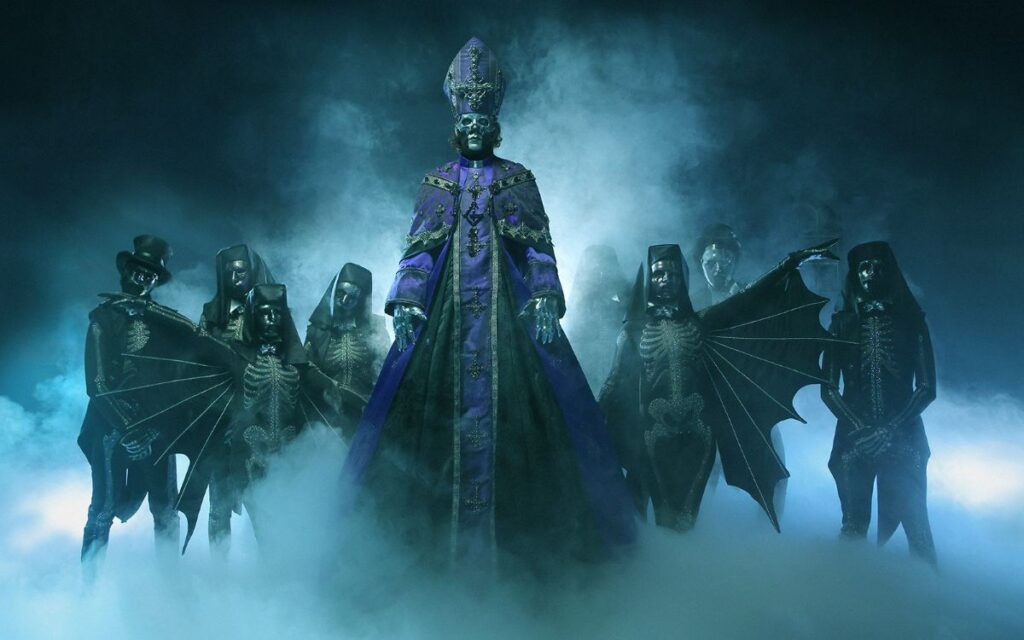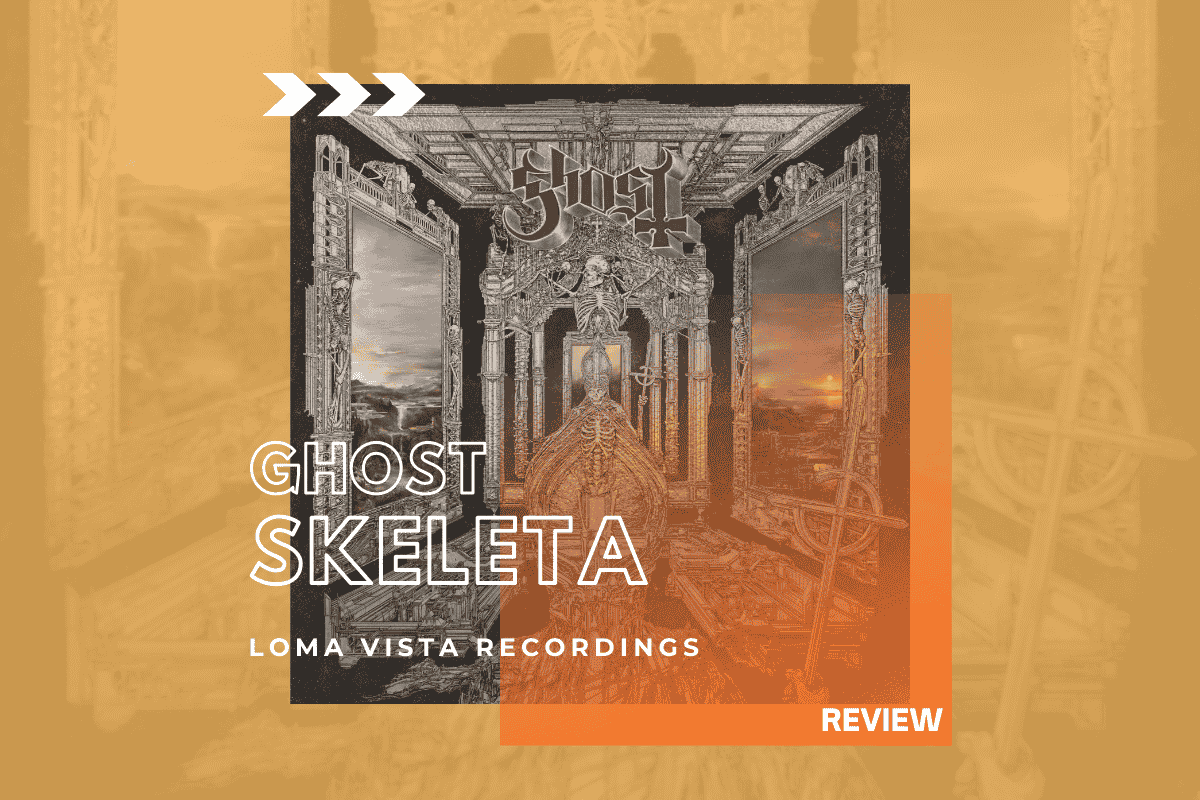It begins, as all hauntings do, with a false sense of safety.
A soft shimmer, a haunting children’s choir, and then Peacefield rolls in – an 80s-inspired opener that plays tricks on your memory, as though you’ve heard it somewhere before on a scratchy radio station. But this isn’t nostalgia for the sake of nostalgia – this is Ghost doing what Ghost does best: cloaking innovation in familiarity, wrapping existential dread in arena-sized melodies. And this time, it’s even more personal.
In a discography already steeped in grand narratives and apocalyptic visions, lyrically Skeletá stands as Ghost’s most inward turn to date. Where Impera dealt with the rise and fall of empires and Prequelle explored the plague through bombast and baroque, Skeletá trades the world stage for something far more personal: the intimate theatre of self. This is Ghost at its most reflective, most emotionally vulnerable – and perhaps, ironically, its most human. Tobias Forge, never one to shy away from costumed metaphor, delivers his latest sermon from within, cloaked in the guise of Papa V Perpetua, the newest incarnation in the band’s ongoing liturgical soap opera.

The vintage sheen across the album, courtesy of producer Gene Walker and the always-reliable Andy Wallace at the mixing helm, feels like it was pressed on tape in a candle-lit cathedral rather than a studio. You can almost hear the hiss of the reel-to-reel beneath the chorus of Lachryma, a track seductively dancing the line between Sabbath and Duran Duran. There’s a magnetic push-pull at play: soaring choruses built for stadiums, twin-guitar assaults, and the glossy sheen of ‘70s and ‘80s rock paired with lyrics that feel scrawled in the margins of a diary. One moment, you’re seduced by bombastic hooks – the next, you’re staring down death in a candlelit chapel, wondering what it all means.
Throughout the album’s middle stretch, Ghost balances on that familiar knife’s edge between camp and sincerity, but here, the sincerity cuts deeper. Umbra oozes with lust, its cowbell heartbeat and sultry swagger recalling the seductive pull of Turbo Lover, but with an even larger-than-life chorus. The band’s metal roots still roar to the surface, most notably in Cenotaph and De Profundis Borealis – both galloping with classic heavy metal thunder, echoing Ghost’s earliest incarnations. And nestled among the pomposity, Guiding Lights is a shimmering, slow-burning power ballad that trades bombast for vulnerability, dealing with the topic of unspoken truths.
And yet, somehow, Skeletá doesn’t wallow. Even as it drifts into darker waters, it never loses its melodic buoyancy or Ghost’s trademark hooks and towering choruses. All of this builds toward Excelsis, the closer, which arrives like a benediction. In typical Ghost fashion, the final track zooms out, offering a panoramic view of everything that came before. Forge has always had a flair for album closers, and Excelsis feels like the spiritual sibling of Life Eternal and Respite on the Spitalfields, but with its own gravitas.
Ghost has never shied away from reinvention, but Skeletá doesn’t reinvent so much as it distills. It is quieter in its ambition, more concerned with truths than theatrics – and yet, paradoxically, more theatrical in its intimacy than ever before.
In the end, Skeletá doesn’t ask you to believe in ghosts. It asks you to believe in yourself, even when the lights go out.
And maybe that’s the scariest thing of all.

